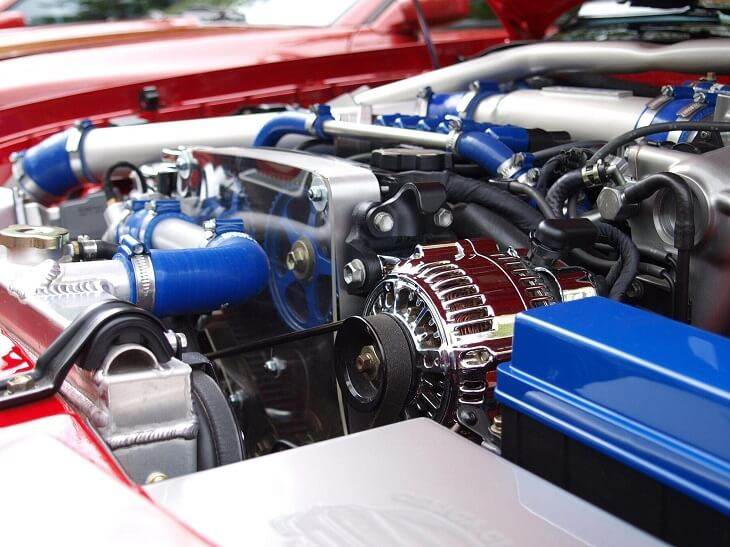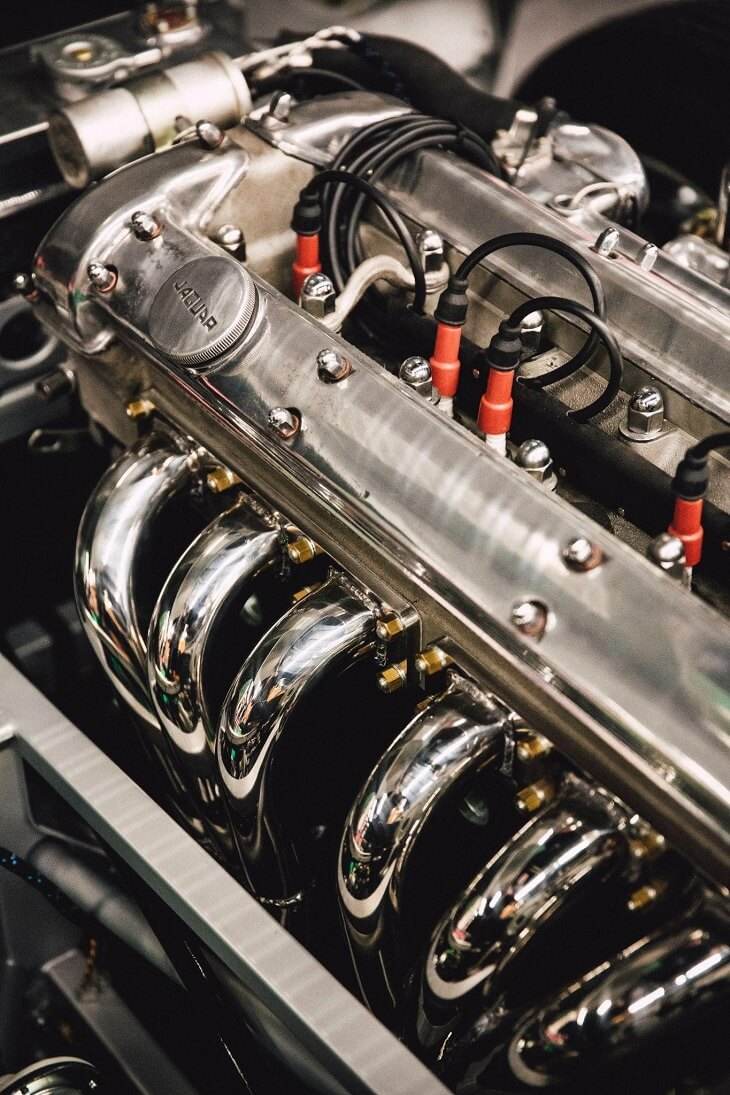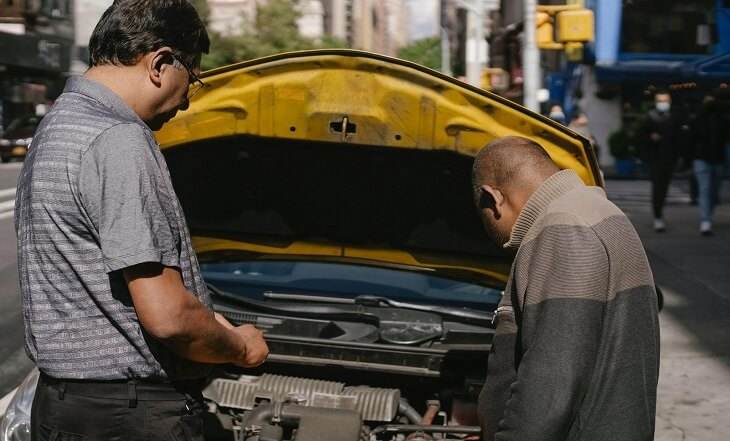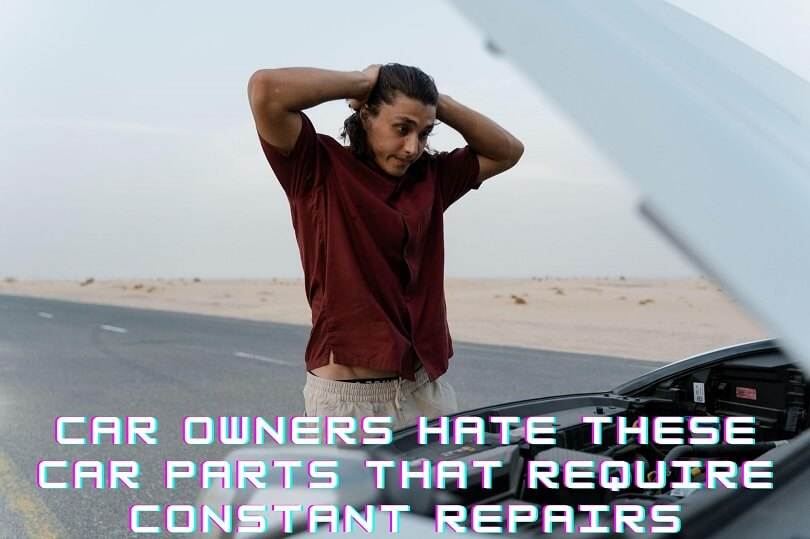Owning a car is like being a concertmaster. You have complete access to the best parts, which when, in unison, create the best music the human ears have ever heard. When any one component goes out of tune, it can lead to disastrous performance. At the same time, the sum of the parts together creates a more serene environment.
That being said, you’ll always have some musician who tends to go off-tune, or harmonize differently than the rest. The same is the case with your car. There are some parts that require a lot more attention than others. What are those? You know them already. But if you don’t—here’s the list, concertmaster.
1. Oil And Coolants
This might sound like a trivial thing, but it is often the small components that get neglected the most. Oil and coolant levels are quintessential to ensure the greater health of your engine. If neglected, it can lead to serious pitfalls. The reason why car owners hate this part is because it requires constant attention—once every few weeks sounds a lot, doesn’t it?
On the brighter side, considering how simple the component itself is, it doesn’t take much to monitor and repair issues, if any. Just pop the hood and you should be able to see if there are any discrepancies between normal and optimum levels of coolant or oil. While most of us don’t like doing it, you should refer to your car’s instruction manual. This will provide insight regarding the frequency of oil and coolant changes needed.
2. Air Filters
One of the criminally neglected parts of the car is the air filter. It is basically the puny part that regulates proper airflow to your engine. This is where the misery begins. It is rather difficult to notice improper functioning of the air filter, so you will have to rely on signs. This is why car owners don’t like digging into air filter problems.
Much like how a medical practitioner uses differential diagnosis to rule out problems, you will also have to rely on signs. A good sign of improper air filter function is a less-than-normal recorded efficiency of the car. Another sign would be weird rattling noises—this might indicate the presence of debris in the air filter. The good news is that the said issues are rather easy to deal with—so much so that it can be done at home itself.
3. Motor Oil

It sounds like we are still stuck in the engine. After all, it is the heart of the car to begin with. The motor oil is one of the most quintessential parts of your engine—after all, it performs a plethora of roles.
Firstly, your engine needs constant lubrication in order to minimize any kind of friction. This is done rather efficiently by the motor oil itself. Next, your engine needs to be at an optimum temperature in order to avoid overheating. Overheating otherwise can cause massive inefficiency in the car itself.
Thirdly, your engine is one of those internal components that is always in motion, thereby subjecting it to massive wear and tear, to begin with. Your motor oil should also aid in the proper improvement of this too, owing to an increase in mobility. All in all, your motor oil needs to be changed in order to maintain the overall efficiency of the car.
How frequently? The reason why car owners hate this question is because of how subjective the answer is. Replacing your motor oil depends on a lot of factors, the most important of which is miles clocked. A general rule of thumb is anywhere between 5000-10000 miles, but which one exactly? There is no definitive answer.
This might also vary according to things like weather, temperature, and believe it or not—the kind of oil you’re using. Be sure to get well-acquainted with your instruction manual, as it will prove to be your savior.
4. Transmission Fluid
Where the engine oil serves as the pacemaker of the engine, the transmission fluid provides life to the gear systems. Transmission fluid is a lubricating substance that keeps your gear systems mobile and usable.
The problem with transmission fluid is the cost. While the numbers are still bearable, if you don’t keep an eye out for quality clearances, you might end up worsening your transmission system overall. The costs will only keep rising from here on.
5. Spark Plugs

Spark plugs are a pain in the posterior to begin with. It is so difficult to figure out if there are any issues with it, owing to the fact that it deteriorates the engine slowly and stealthily. A real bummer to deal with.
Your spark plug is the component that ignites the gas and air mix. This is what eventually runs power in your engine, thereby giving it life. The problem here (and why car owners hate it) is the fact that loose spark plugs are rather difficult to diagnose on your own. When spark plugs are loose, your engine will start losing power and efficiency so discreetly that you won’t even notice at first.
For this, always take the help of a professional to deal with spark plug issues. Moreover, ensure that you get the best spark plug wires, to begin with. While detecting vile issues here can be difficult, a repair can be surprisingly easy if done by professional hands. If not, you might need more than a handful of good luck to get your car running like before.
6. Illumination Of Any Kind
The reason why this is on our list is simply because of how annoyingly it gets damaged. Brake lights, parking lights, turn signals—any kind of illumination is prone to both extrinsic and intrinsic damages.
Your lights can become subject to damage owing to internal component failure, or any electrical mishap. It can also be subject to external damage—caused by both nature or humankind.
Think about it—a small nudge or getting tailgated can result in damage. Excessive rain or snow can result in damage. Sure, the costs of repair aren’t high. In fact, you can fix it on your own. The problem lies in its frequency.
7. Paint
Speaking of regular maintenance, your paint job can go to the proverbial abyss if not taken care of periodically. A big reason why car owners hate today’s paint quality-control (or lack thereof) is that it requires frequent visiting.
Waxing your car every other day becomes super important here. You can also slap in the skin or something similar, but those require frequent maintenance too. Who would’ve thought owning a car could be this arduous a task!
8. Brakes
Brakes are one of the most important long-term components by far. Funnily enough, replacing them can be really annoying. Here is why.
First, they don’t come cheap. Even if it is a minor replacement that requires a bit of screwing and unscrewing, it will set you back a few hundred dollars. Secondly, replacing brakes isn’t as modular as you think. Sure, you might have a rear brake issue, but oftentimes the pads and the rotors get replaced together, thereby increasing costs.
Third, it isn’t possible to DIY the differentials of brake damage. Is it just a squeak? Or is it vibration too? Is there any bite to the brake? Or does the car keep rolling over to the other side? It is very difficult to diagnose and pinpoint brake damages. For this, going to the mechanic all the time can be really annoying.
9. The Dashboard and Consoles

Finally, the fancy displays that modern cars provide these days can be rather difficult to maintain and repair. Firstly, the screens on most cars aren’t that crisp; secondly, they are subject to lagging.
This cannot be done on a DIY basis. Your display and dash can start malfunctioning owing to electrical problems. Or worse—they refuse to show actual data of attributes like speed or oil leaks, or even seat belt warnings. It can make you wonder whether the age-old wagon was the way to go!
Will Insurance Cover These Breakdowns?
As a car owner, there are a few car parts that you know to be troublemakers. You dread that they will break at the worst possible time and cost you the most money in the process. Many of these car parts are those that are big and important, like your engine and your transmission. Because these components don’t directly affect how you drive or how comfortable you are while driving, they tend to be things that aren’t part of standard coverage with your insurance company.
However, if you get breakdown insurance as an add-on to your car insurance policy, many of those major mechanical issues will be covered by the company. In fact, breakdown insurance can even cover some of the more minor issues like tire damage or battery malfunction, if your plan allows. If you’re one to have a backup plan for any issue that arises, consider adding this kind of coverage to your next policy!
To Conclude
From brakes to oil changes to spark plugs, having your car repaired is a necessary evil. But not everything about a car needs constant assurance. For instance, tires take some time to wear out, irrespective of your fashion of driving. Batteries don’t wear out as easily as they used to last decade.
Coolants and wiper fluids practically can be changed after every alternate season. That being said, make sure to get these components checked at least annually if not biannually, lest the costs will keep rising!

